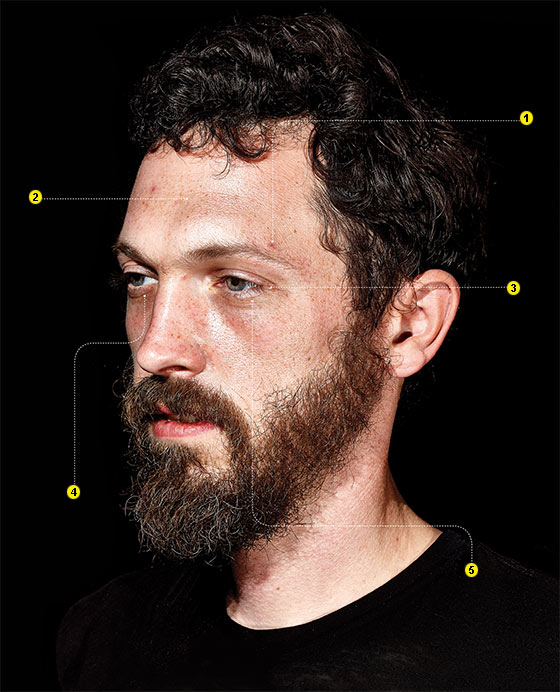
Over four days last month, from May 12 to 15, Andrew Bunch, 31, got a collective three hours of sleep, as best he can recall. (As bad as that sounds, it’s still on the far end of normal: The record for non-drug-fueled human wakefulness is 11 days, set by a teenager in 1964.) “My employees half the time asked when I last slept, because I looked like a train wreck,” Bunch says. He’s the owner of Abunch LLC, in Greenpoint, and had been hired to build sets for a string of events—the CBS upfronts after-party, some charity benefits, and a furniture show. Each day, he’d work until about 3 a.m., go home, sleep an hour, shower, then head back out. The lack of sleep flared his temper, he says. He snapped easily. But finishing the job was no problem. “It’s all adrenaline,” he says. “Your mind can stay focused if it has something to do.” And when it was all done, relief came gradually: He slept seven consecutive hours but felt wrecked for days.
1. Breaking out
Cortisol activates inflammation in the skin—which makes blemishes worse.
2. Wrinkling
Cortisol wins the battle with growth hormones, which normally regenerate the collagen in skin overnight.
3. Reddening
It also beats up on the cells that line blood vessels. The enlarged vessels show up clearly in the whites of the eyes.
4. Puffing
It makes the body hoard sodium and fluid.
5. Darkening circles
Under the eyes, those blood vessels dilate, causing discoloration.
Medical effects explained by Dr. Shari Lipner, dermatologist, NewYork-Presbyterian/Weill Cornell Medical Center.